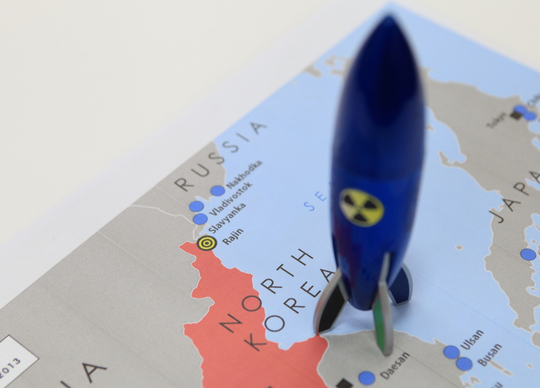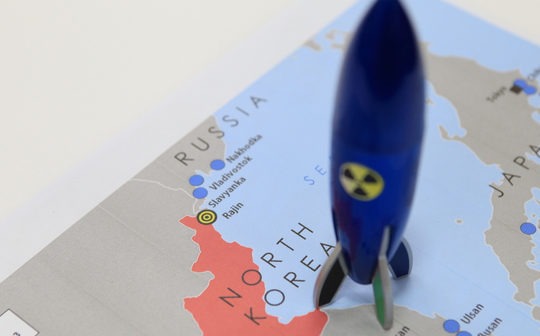
By Dr. Keith Suter.
North Korea has made it. It is forcing us to accept that it is now a nuclear power – and so untouchable.
North Korea has tested four missiles in the last two weeks. It now has a diverse nuclear arsenal, including state of the art hypersonic missiles (which travel at five times the speed of sound).
I loathe North Korea’s policies, but one has to admit that the nuclear weapons are a great achievement. The country is very poor, many people are malnourished, and the health system is not robust enough to cope with a COVID outbreak. And yet it has been able to acquire nuclear weapons.
There are four implications worth noting. First, if North Korea can do it pretty well any other country can do it. Therefore, alas, the North Korean achievement is an example to other countries. A brutal leader who is willing to starve the people in order to feed the military, who is willing to risk international isolation, and who can mobilise the people to withstand all sorts of suffering to “protect national security”, could try to follow the North Korean example.
There is a risk that other countries could follow suit. In the mid-1960s, when I first began giving talks on nuclear proliferation, there was speculation that by the distant year of 2000 there could be as many as 30 nuclear weapon states (including Sweden, Canada and Australia).
Then came the Nuclear Non-Proliferation Treaty (NPT), and there was an international law mechanism whereby countries could agree not to acquire nuclear weapons if other countries made the same commitment. The year 2000 arrived without the large number of weapons states that was predicted. I was very happy to be wrong!
But now the NPT era is under threat from North Korea’s example. This will add to pressure in Japan to also increase its own military strength. A heavily rearmed Japan will encourage other countries in that region to increase their own military. There could be localized arms races.
Second, North Korea represents the US failure for over three decades to stop North Korea’s nuclear ambitions. Successive US leaders have used a “stick and carrot” approach: sometimes using sanctions, and at other times trying to open up dialogue with North Korea (Donald Trump tried both). They all failed.
All the while, North Korea was buying time. It has used that time wisely and now it would be very risky for the US to attack North Korea. The US and its allies (including Australia) will have to learn to live with a nuclear armed North Korea, and hope that North Korea will not try to use its weapons to bully its neighbours.
Third, North Korea is now China’s problem. It is also the tail that wags the dog. China has preferred to keep the North Korean dynasty in power for fear that North Korea could go the way of East Germany after 1991: swallowed up by its wealthier neighbour. That would mean South Korean forces (and their US allies) deployed along China’s border.
North Korea is now too big to fail. China will need to keep the North Korean dynasty in power to safeguard part of its border. If anything were to happen to the dynasty, this would be seen as a failure by China’s President Xi to protect his ally.
A problem with empires is that you acquire imperial responsibilities. North Korea is now one of China’s responsibilities.
North Korea knows this and can exploit it. China is only weeks away from the Winter Olympics. The games have been surrounded by a host of problems (such as COVID, and allegations of human rights abuses).
Now North Korea is adding to the tensions by conducting tests without the usual “provocation” – military exercises by the US and South Korea. It is winter in that part of the world and so too cold for military exercises.
But North Korea is carrying on – even though one could imagine that China would prefer not to have them in the lead up to the games.
Finally, if a nuclear armed North Korea is a nightmare, could the alternative be even worse? We must always be willing to think about the unthinkable.
The unthinkable in this case would be a rebellion within North Korea that sees the dynastic rulers being removed from power and the country falling into chaos. A “North Korean Spring”?
As with the “Arab Spring” a decade ago, there are no obvious replacements getting ready for taking over power. There are no “Nelson Mandelas” ready to spring into action. The Arab world has had a decade of chaos and suffering – and still very little democracy has been established.
North Korea could be the same – except that it now has nuclear weapons. Who will get them?






